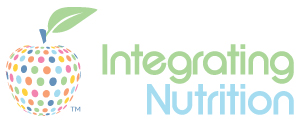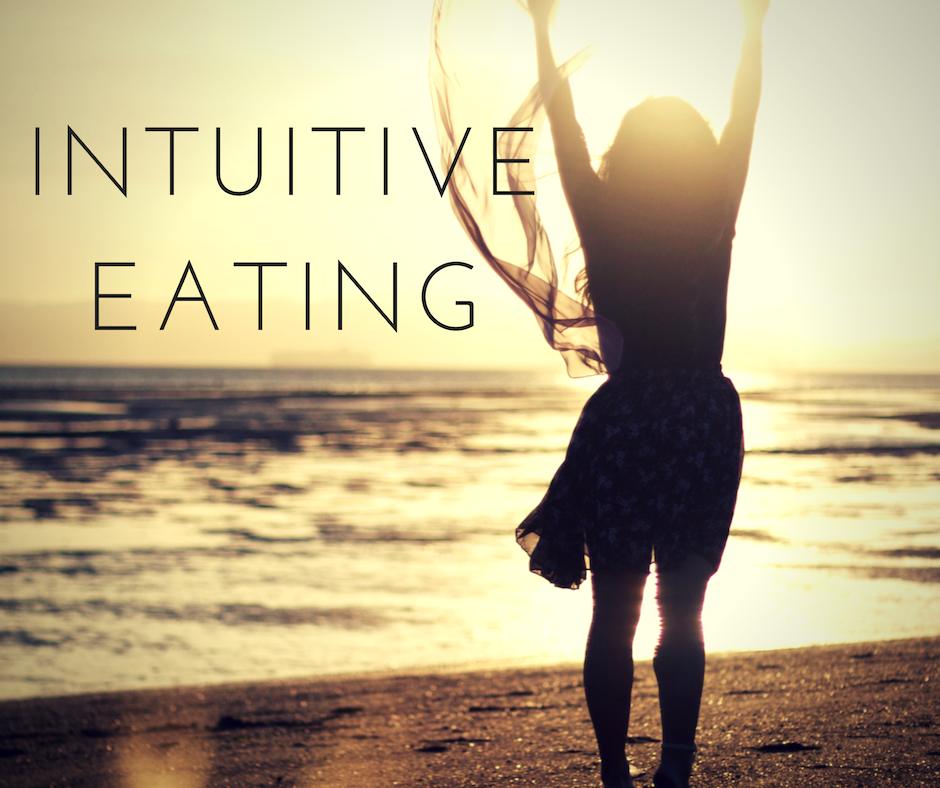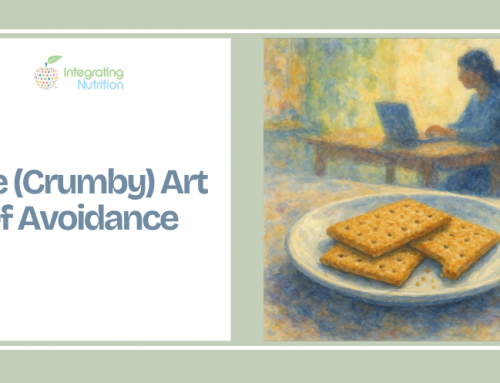This month… let’s discuss Intuitive Eating.
Bet you didn’t know that this year marks a rather infamous centennial: in 1918, the first calorie-counting diet was launched to a mass audience.
In her book called Diet & Health: With Key to the Calories, author Dr. Lulu Hunt Peters encouraged her target audience (mostly women) to embrace the fashions of the thin-is-in, “flapper” craze that grew in popularity following World War One. Previously, most doctors focused on diet were interested in making sure their patients were getting proper nutrition. Dr. Peters’ advocacy of using rules to restrict calories and improve her readers’ well-being and social acceptability seemed to make getting the desired results, well, simple.
Of course, simple is not the same as easy.
Back then–as now–what amounted to yo-yo dieting proved to be a frustrating and ineffective way for most people to reach their goals. Society began to look at people (mostly women) who were not able to create or maintain the socially ideal body image as weak or undisciplined. So they were encouraged to try harder, follow the rules more strictly, and people wrote more books and offered products promoting the same sort of stuff, and after a century this dynamic developed into the economic juggernaut that is the massive diet industry thriving today. The only problem is, for most people calorie counting doesn’t work in the long run, and often results in outcomes that were the opposite of the goals people were dieting for in the first place. The calorie-obsessed approach completely ignored human dynamics; disregarded the physiological, emotional and psychological aspects of who we are that actually determine how people relate to food. Yet despite that, old diet culture influences continued unchallenged… until relatively recently.
Thankfully, as the physiological, emotional and psychological elements become more significant to health care providers focused on nutrition, better ways of relating to what and how we eat are appearing.
Since its emergence in the 1990s, the growth of Intuitive Eating has begun to teach people to relax their attitudes toward food and eating. Intuition, after all, is governed by instinct, not rules, and so Intuitive Eating rejects rule-based diets in favor of listening to our own bodies. Intuitive Eating lets our bodies decide when we are hungry and want to eat, and when we are full and it’s time to stop eating. It discards the “shoulds” of restrictive diets (you should eat this, you should not eat that) in favor of a “good enough is actually, well good enough” approach. If you truly honor your body and its needs, you will generally treat it well. Intuitive Eating actively encourages a positive relationship with food and eating; the whole point of food, after all, is enjoyment, satisfaction and nourishment.
Intuitive Eating removes all stigmas and self-contempt from your relationship with food and eating. It is less about rules and more about a way of being. If there are no rules, there is nothing to violate and nothing to beat yourself up over. It’s about just you being you in your body, and learning to listen to what your body is telling you.
It does take some people a while to re-train their relationship with food away from the old inflexible diet rules and restrictions that used to control long-ingrained eating patterns, but based on the feedback from my clients, it is so worth the effort. (An important technique toward learning how to eat intuitively is called Mindful Eating, but my thoughts on that will have to wait until another time.)
Until next time… honor your body, and enjoy what you eat!





